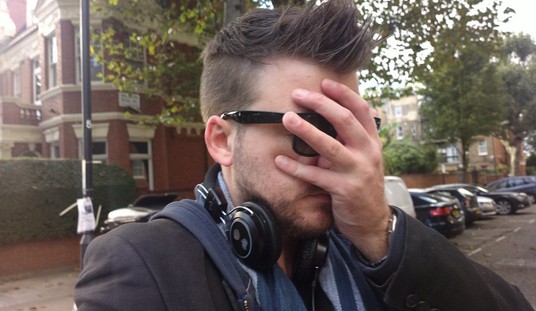Wishful thinking, a disaster in the making, or a little of both? The Atlantic’s Derek Thompson claims that sweeping and draconian gun control laws must be a part of any conversation about police reform, and on today’s Bearing Arms’ Cam & Co, we take a look at his ideas and why they’re wildly out of touch.
Thompson first tries to make his case for more gun laws and fewer gun owners by proclaiming that the science is clear: fewer guns equals less crime.
Let’s begin with the simplest fact: Life is more dangerous in the presence of firearms—period. A 2013 study of U.S. states in the American Journal of Public Health found that for each percentage-point increase in gun ownership, the overall firearm homicide rate increased by 0.9 percent, controlling for other factors. The correlation between gun availability and violent crime is statistically significant at every level of income. More money can spare Americans from the material and psychological ravages of poverty, but it does not buy an exception from the deadly social physics of guns.
Unfortunately for Thompson, he undercuts his own argument just a couple of paragraphs later while bemoaning the militarization of police departments.
Today’s warrior-cop training is inappropriate, as violent crime has declined by more than 70 percent since 1993. But perhaps some police paranoia comes from the fact that the U.S. has added twice as many guns as people since the mid-1990s. “Generally, when a police officer pulls up to a car in Australia, they don’t expect someone to be armed,” Terry Goldsworthy, a criminologist at Bond University in Queensland, Australia, has said. Indeed, just 6 percent of Australian households own a gun. In the U.S., that figure is 43 percent.
So, violent crime is down by more than 70-percent since 1993, while gun sales have soared during the same time period. I’m confused. Didn’t Thompson just tell us that, according to that 2013 study, the nation’s homicide rate should have skyrocketed along with gun sales over the past 25 years?
Instead of rising, the homicide rate in this country has plummeted from 9.5 homicides per 100,000 people in 1993 to 5 homicides per 100,000 in 2018, according to FBI Uniform Crime Statistics. In raw numbers, there were 24,530 homicides in 1993 compared to 16,214 in 2018. Even as the nation added 50,000,000 people, the number of homicides, aggravated assaults, robberies, and burglaries all dropped precipitously. If Thompson is correct that more guns equal more crime, then how does he explain the historic plunge in violent crime while the country “added twice as many guns as people”?
Sadly, Thompson never gets around to that. Instead, he offers up policy prescriptions that he acknowledges as being as unrealistic as abolishing the police.
The solutions are socially and politically improbable—but perhaps no more improbable than abolishing the police. They could begin with banning guns of war, requiring universal background checks, and instituting national “red flag” laws to keep guns from potentially dangerous people. These measures might sound small-bore compared with the challenge before us, but they could still make a difference. Deborah Azrael, also of the Harvard Injury Control Research Center, has found that 40 percent of gun owners acquired their most recent firearm without a background check. There may be few issues that straightforwardly unite police reformers and police unions, but reducing the social toxin of gun prevalence, especially in high-crime areas, ought to be at the top of that list.
I’m not sure why Thompson cited a 2015 quote from Azrael when she said in 2017 that her research shows that about 20-percent of gun owners said their most recent acquisition was done without a background check. Maybe Thompson’s really bad at using Google, or maybe he went with the larger number because it sounds scarier and he was more interested in making his audience afraid than informed. Whatever the reason, he ended up misleading his readers and did nothing to bolster his argument.
As for his call to ban “guns of war,” mandate background checks, and institute a national “red flag” law, once again, Thompson falls woefully short on specifics, particularly since he’s largely tailoring his argument for supporters of police reform. Who exactly is supposed to enforce a prohibition on owning the most commonly sold rifles in the United States? Something tells me it won’t be social workers.
The same goes for background checks and “red flag” laws. In fact, I recently pointed out that gun control advocates are pushing “red flag” laws that have no room for any sort of mental health component to them, like Virginia’s new law set to take effect on July 1st.
Under Virginia’s proposed law, judges or magistrates could issue an emergency order allowing police to seize a subject’s guns if an investigation determines that person poses “a substantial risk of personal injury to himself or others in the near future.” Within 14 days, a court hearing would be held to determine whether a more long-term order is justified. At that hearing, a judge could decide to return the guns or extend the order for up to 180 days, with additional extensions possible if authorities believe the threat of violence has not diminished with time.
I don’t see any sort of mental health evaluation in that description. In fact, the words “mental health” don’t even appear in Virginia’s red flag law. That’s because it’s simply another gun control law, and despite Thompson’s fervent hopes, it’s going to be enforced by armed agents of the State. No matter how much Thompson might want to avoid the unpleasant realities of his proposal, the fact is that the disarming of American citizens would inevitably have to come before police are abolished. Frankly, I don’t see either happening anytime soon.
Be sure to check out today’s entire show, where I also get into specifics about what will work to further reduce violent crime in the country (hint: it does not involve gun control), as well as an armed citizen story from Nashville and a good deed performed by a veteran who helped police snag a man impersonating an officer.









Join the conversation as a VIP Member